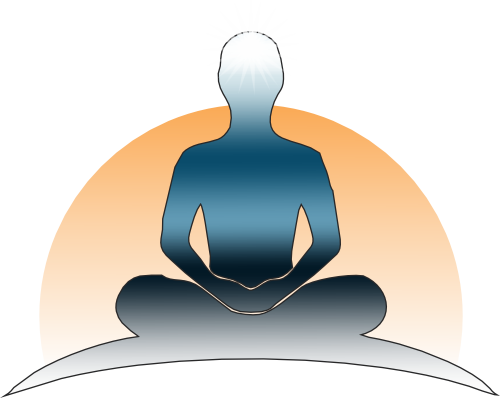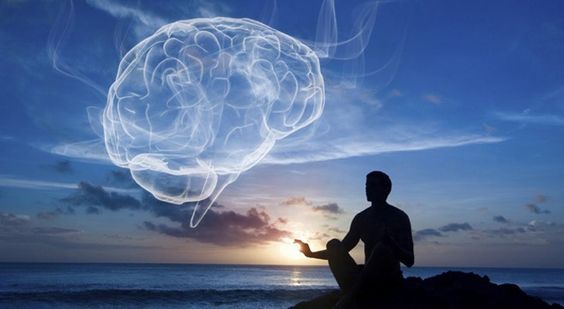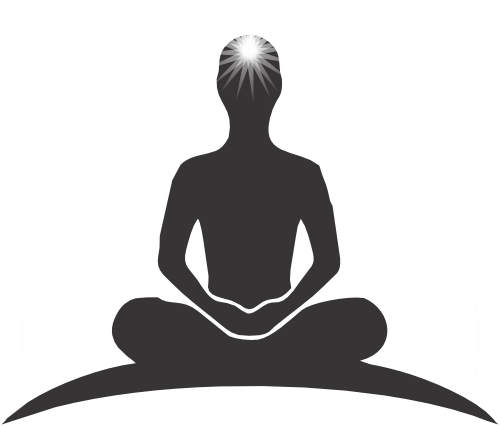
Ask me anything on this article.I am here to help you anytime.
Ms. Shashi Maurya
Internationally Certified Brain Trainer
Mindfulness meditation, rooted in ancient contemplative practices, has gained widespread attention for its positive impact on mental well-being, including cognitive enhancement. This intentional form of meditation involves focusing attention on the present moment, cultivating awareness, and accepting thoughts without judgment.
what is Mindfulness meditation??
Mindfulness meditation is a form of meditation that originates from Buddhist contemplative traditions but has been adapted and widely embraced in secular contexts. It involves cultivating a focused and non-judgmental awareness of the present moment. The practice encourages individuals to direct their attention to their thoughts, feelings, bodily sensations, and the surrounding environment without attachment or judgment. Mindfulness meditation is often used as a tool for stress reduction, emotional regulation, and cognitive enhancement. Here are some key components of mindfulness meditation:
- Focused Attention: Mindfulness meditation typically begins with a focus on a specific point of attention. Commonly, practitioners focus on their breath, sensations in the body, or a particular point of focus, like a sound or an object.

- Non-Judgmental Awareness: A central tenet of mindfulness is cultivating a non-judgmental awareness of one’s thoughts and experiences. Practitioners are encouraged to observe thoughts and feelings without attaching labels such as “good” or “bad.”
- Present Moment Awareness: Mindfulness emphasizes being fully present in the current moment. Rather than dwelling on the past or worrying about the future, practitioners strive to anchor their awareness in the present, appreciating the richness of each moment.
- Breath Awareness: Many mindfulness practices involve paying attention to the breath. The rhythmic nature of breathing serves as a focal point for anchoring the mind and developing concentration.

- Body Scan: Some mindfulness meditations include a body scan, where practitioners systematically bring attention to different parts of the body, observing sensations and promoting a heightened awareness of bodily experiences.
- Open Monitoring: In open monitoring or choiceless awareness, practitioners observe whatever arises in their awareness without intentionally focusing on a specific point. This form of mindfulness meditation encourages a broad and receptive awareness of the present moment.
- Acceptance and Equanimity: Mindfulness encourages acceptance of the present moment as it is. This involves acknowledging thoughts and feelings without resistance, fostering a sense of equanimity in the face of various experiences.

- Mindful Movement: Mindfulness can extend to movement practices, such as mindful walking or yoga. These activities integrate the principles of mindfulness into physical movements, promoting a holistic mind-body awareness.
- Loving-Kindness Meditation (Metta): Some mindfulness traditions incorporate loving-kindness meditation, where practitioners cultivate feelings of love and compassion toward themselves and others. This practice contributes to emotional well-being and positive interpersonal relationships.
- Mindfulness-Based Stress Reduction (MBSR) and Mindfulness-Based Cognitive Therapy (MBCT): These structured programs integrate mindfulness practices into therapeutic interventions. MBSR and MBCT have been effective in addressing stress, anxiety, and depression.
Mindfulness meditation is often taught through guided sessions, where an instructor leads participants through various mindfulness exercises. Additionally, there are numerous resources, including books, apps, and online platforms, that provide guidance for individuals looking to incorporate mindfulness into their daily lives. Regular practice is key to experiencing the full benefits of mindfulness meditation, which may include reduced stress, improved focus, enhanced emotional regulation, and an overall sense of well-being.
Here’s how mindfulness meditation can contribute to cognitive enhancement:
- Improved Attention and Concentration: Mindfulness meditation involves training the mind to focus on the present moment, often through breath awareness or body scanning. This practice enhances attention and concentration, leading to improved cognitive focus and reduced mind-wandering.
- Enhanced Working Memory: Regular mindfulness practice has been associated with improvements in working memory—the ability to hold and manipulate information in the mind. This can positively impact tasks that require active cognitive processing and problem-solving.
- Stress Reduction and Emotional Regulation: Mindfulness meditation is renowned for its stress-reducing effects. By promoting a non-judgmental awareness of thoughts and emotions, individuals can develop better emotional regulation skills, leading to a calmer and more focused mind.
- Increased Cognitive Flexibility:Mindfulness encourages an open and accepting attitude towards thoughts and experiences. This cultivates cognitive flexibility—the ability to adapt and shift thinking patterns when faced with new information or challenges.
- Enhanced Self-awareness: Mindfulness encourages self-reflection and self-awareness. Through regular practice, individuals gain insight into their thought patterns and reactions, fostering a deeper understanding of their cognitive processes.
- Reduced Rumination: Mindfulness meditation has been shown to decrease repetitive and intrusive thoughts, known as rumination. By breaking the cycle of rumination, individuals experience mental clarity and a reduction in negative thought patterns.
- Brain Structural Changes: Neuroimaging studies suggest that mindfulness meditation can induce structural changes in the brain, particularly in regions associated with self-awareness, memory, and emotion regulation. These changes may contribute to cognitive improvements.
- Promotion of Mindful Decision-Making: Mindfulness encourages a non-reactive and non-judgmental awareness of the present moment. This mindset can positively influence decision-making processes, allowing for more thoughtful and intentional choices.
- Better Sleep Quality: Mindfulness practices, particularly those that involve relaxation and mindful breathing, can contribute to improved sleep quality. Restorative sleep is crucial for cognitive functioning, including memory consolidation and learning.
- Neuroplasticity and Cognitive Reserve: Mindfulness meditation may support neuroplasticity—the brain’s ability to reorganize and form new connections. This can contribute to cognitive reserve, potentially mitigating the impact of aging or cognitive decline.
- Mind-Wandering Reduction: Mindfulness practices help individuals become more aware of when their minds wander and gently guide their attention back to the present moment. This reduction in mind-wandering can lead to enhanced cognitive performance.

To incorporate mindfulness meditation into your routine for cognitive enhancement:
- Start with Short Sessions: Begin with short sessions, gradually increasing the duration as you become more comfortable.
- Consistency is Key: Regular, consistent practice yields more significant cognitive benefits. Aim for daily mindfulness sessions.
- Use Guided Meditations: Utilize guided mindfulness meditation sessions, available through apps or online platforms, to help structure your practice.
- Practice Mindful Breathing: Focus on your breath as a point of attention, bringing your mind back when it wanders. This simple technique can be done anytime, anywhere.
- Be Patient and Non-Judgmental: Mindfulness is about observing without judgment. Be patient with yourself and approach your practice with a gentle, non-critical attitude.
By incorporating mindfulness meditation into your routine, you can tap into its cognitive benefits, promoting mental clarity, emotional well-being, and enhanced cognitive functioning.

Ask me anything on this article.I am here to help you anytime.
Ms. Shashi Maurya
Internationally Certified Brain Trainer
The Impact of Social Connections on Cognitive Well-being
Humans are social creatures, we all crave connection and our connections with others go far beyond mere entertainment. Social interaction isn't just about feeling good; it's a secret weapon for your brain. It's woven into [...]
Tech Tools for Brain Training and Cognitive Improvement
Our ability to navigate the complexities of the world hinges on a set of core functions known as cognitive skills. These skills, acting as the building blocks of learning, are the foundation for how we [...]
The Power of Positive Thinking: Influence on Brain Health
Positive thinking isn't just about ignoring the bad and forcing a smile. It's a mental attitude that focuses on the good, expecting the best, and believing in your ability to cope with challenges. Positive thinking [...]
Neurological Benefits of Music on Brain Function
Music isn't just pleasing sounds; it's a full-body workout for the brain. When we listen to music, different regions light up like a symphony orchestra, each playing a crucial role: Ancient Melodies for Modern Minds: [...]
Your Brain’s Tiny Gatekeeper to Sleep, Dreams, and More: Exploring the Pineal Gland
The Pineal Gland: A Tiny Pinecone with Big Mysteries Deep within the human brain, nestled between the hemispheres, lies a tiny pinecone-shaped gland shrouded in mystery: the pineal gland. Often referred to as the "third [...]
How Stress Affects the Brain and Strategies to Manage It
Stress is more than just feeling overwhelmed. It's a complex dance between your body and mind. By understanding how stress works, you can unlock tools to manage it, improve your mood, and even sharpen your [...]
Sharper Mind, Sharper Life: Effective Memory Enhancement Techniques for Everyday Life
Memory, in the context of cognitive psychology, refers to the mental faculty of: Encoding: Taking in information through our senses and transforming it into a usable form for the brain. Storing: Retaining the encoded information over time. [...]
Yoga for Brain Development
Yoga, originating in ancient India, transcends mere physical exercise. It's a holistic practice encompassing various aspects: Physical postures (asanas):Stretching and poses enhance flexibility, strength, and balance. Breathing exercises (pranayama):Specific breathing techniques promote relaxation, focus, and [...]
The Role of Creativity in Strengthening Cognitive Abilities
The Symphony of Creativity: Culture, Innovation, and Intelligence in Harmony Contrary to popular belief, creative thinking isn't just about paintbrushes and poetry; it's the hidden engine driving innovation across diverse fields. From the revolutionary theories [...]
Unlocking Your Brain’s Potential: The Cognitive Benefits of Learning a New Language
Learning a new language isn't just about unlocking communication with new people and cultures. It's also a powerful workout for your brain, offering a surprising range of cognitive benefits that extend far beyond fluency. Sharpen [...]
Unlocking Vitality: The Crucial Role of Sleep in Nurturing Health and Well-being
Sleep is a cornerstone of our well-being, playing a pivotal role in maintaining both physical and mental health. Its importance extends across various dimensions of our lives, influencing cognitive function, emotional control, and overall quality [...]
Brain-Boosting Foods: A Guide to Cognitive Nutrition
Nourishing your brain with the right foods is essential for optimal cognitive function and overall mental well-being. Incorporating nutrient-rich foods into your diet can support memory, concentration, and overall brain health. Here's a guide to [...]
The Impact of Social Connections on Cognitive Well-being
Humans are social creatures, we all crave connection and our connections with others go far beyond mere entertainment. Social interaction isn't just about feeling good; it's a secret weapon for your brain. It's woven into [...]
Tech Tools for Brain Training and Cognitive Improvement
Our ability to navigate the complexities of the world hinges on a set of core functions known as cognitive skills. These skills, acting as the building blocks of learning, are the foundation for how we [...]
The Power of Positive Thinking: Influence on Brain Health
Positive thinking isn't just about ignoring the bad and forcing a smile. It's a mental attitude that focuses on the good, expecting the best, and believing in your ability to cope with challenges. Positive thinking [...]
Neurological Benefits of Music on Brain Function
Music isn't just pleasing sounds; it's a full-body workout for the brain. When we listen to music, different regions light up like a symphony orchestra, each playing a crucial role: Ancient Melodies for Modern Minds: [...]
Your Brain’s Tiny Gatekeeper to Sleep, Dreams, and More: Exploring the Pineal Gland
The Pineal Gland: A Tiny Pinecone with Big Mysteries Deep within the human brain, nestled between the hemispheres, lies a tiny pinecone-shaped gland shrouded in mystery: the pineal gland. Often referred to as the "third [...]
How Stress Affects the Brain and Strategies to Manage It
Stress is more than just feeling overwhelmed. It's a complex dance between your body and mind. By understanding how stress works, you can unlock tools to manage it, improve your mood, and even sharpen your [...]
Sharper Mind, Sharper Life: Effective Memory Enhancement Techniques for Everyday Life
Memory, in the context of cognitive psychology, refers to the mental faculty of: Encoding: Taking in information through our senses and transforming it into a usable form for the brain. Storing: Retaining the encoded information over time. [...]
Yoga for Brain Development
Yoga, originating in ancient India, transcends mere physical exercise. It's a holistic practice encompassing various aspects: Physical postures (asanas):Stretching and poses enhance flexibility, strength, and balance. Breathing exercises (pranayama):Specific breathing techniques promote relaxation, focus, and [...]
The Role of Creativity in Strengthening Cognitive Abilities
The Symphony of Creativity: Culture, Innovation, and Intelligence in Harmony Contrary to popular belief, creative thinking isn't just about paintbrushes and poetry; it's the hidden engine driving innovation across diverse fields. From the revolutionary theories [...]
Unlocking Your Brain’s Potential: The Cognitive Benefits of Learning a New Language
Learning a new language isn't just about unlocking communication with new people and cultures. It's also a powerful workout for your brain, offering a surprising range of cognitive benefits that extend far beyond fluency. Sharpen [...]
Unlocking Vitality: The Crucial Role of Sleep in Nurturing Health and Well-being
Sleep is a cornerstone of our well-being, playing a pivotal role in maintaining both physical and mental health. Its importance extends across various dimensions of our lives, influencing cognitive function, emotional control, and overall quality [...]
Brain-Boosting Foods: A Guide to Cognitive Nutrition
Nourishing your brain with the right foods is essential for optimal cognitive function and overall mental well-being. Incorporating nutrient-rich foods into your diet can support memory, concentration, and overall brain health. Here's a guide to [...]















